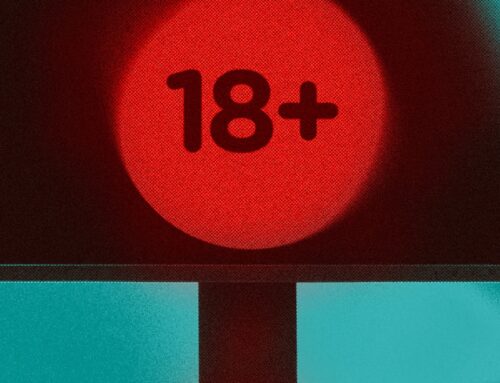A damning report has found that mental health resources in regional South Australia are so inadequate, there are fewer psychiatrists in the state per person than in Mongolia, Ukraine or Russia.
Key points:
- The report reveals there are just 19.3 full time positions in SA’s rural psychiatry workforce
- It was prompted by the loss of 27-year-old Riverland man Theo Papageorgiou in 2016
- Researchers say there is lack of investment in rural mental health
That is in stark contrast to the Adelaide metro area, which has the highest rate in Australia.
The review was prompted by the loss of 27-year-old man Theo Papageorgiou who died in January 2016.
In the two weeks before his death, Theo presented to the Riverland General Hospital in Berri twice feeling depressed and suffering from his poor mental health, but was sent home both times.
A coronial inquest ultimately ruled his suicide was preventable, finding major deficiencies in the mental health system.
A 97-page report into rural mental health, triggered by the case and prepared for the state government, has now been published.
“The current situation did not emerge overnight, it is the result of the failure of successive governments to appreciate rural mental health challenges and take responsibility to drive mental health service enhancements,” it said.
It reveals there are just 19.3 full time positions in SA’s rural psychiatry workforce, most of them based in Adelaide, with just three living in a rural community.
“Based on current SA population data, the total rural psychiatry workforce is by far the worst of any state in Australia.”
Theo’s father Jack Papageorgiou told ABC’s The World Today the regions deserve equal service and qualified professionals.
“It is sad it takes the loss of our son, and an inquest, to get to this sort of level … the system has failed, it’s a broken system,” he said.
“We want to see this prevented from happening to any other family.”
|
Psychiatrists (per 100,000 population) |
||
|---|---|---|
|
New South Wales |
Major cities |
17.3 |
|
Inner regional |
7.1 |
|
|
Victoria |
Major cities |
19.9 |
|
Inner regional |
8.1 |
|
|
Queensland |
Major cities |
20.6 |
|
Inner regional |
9.7 |
|
|
Western Australia |
Major cities |
16.6 |
|
Inner regional |
6.1 |
|
|
South Australia |
Major cities |
22.5 |
|
Inner regional |
2.1 |
|
|
Tasmania |
Inner regional |
21.5 |
|
Outer regional |
5.5 |
|
|
Source: Australian Institute for Health and Welfare 2020 |
||
Drastic increase in psychiatrists — and regional voices — required
One of the report’s authors, Associate Professor Mathew Coleman from the University of Western Australia, said there was virtually no representation of country voices in the SA Health bureaucracy, who also had to compete with Adelaide’s Local Health Networks for funding and opportunities.
“It’s discriminatory, it’s unjust and sadly the people that pay the consequences are those that live in country South Australia,” Dr Coleman told The World Today.
“There’s a lack of accessibility of services, there’s long wait times, they have to travel inordinate distances to be seen – or not in many respects – and the people at the coalface, the clinicians in country South Australia doing their darnedest, eventually become demoralised and dejected.”
Dr Coleman said it was notable there is a Minister for Regional Roads, but not one for mental or rural health.
“It really demonstrates the lack of innovation, the lack of investment, the lack of opportunities for psychiatrists to live, work and train in regional South Australia.”
It comes at a time when mental health is a growing focus of communities in rural and remote Australia.
The report makes 30 recommendations to improve the system, including increasing funding and training pathways, changes to governance and oversight, and setting up mental health beds outside of Adelaide.
It also suggests offering more perks to psychiatrists who move to the regions, including extra professional development leave and financial support, subsidised housing, and a boarding school bursary for dependent children.
A fly-in fly-out medical workforce to support and supplement local teams was also considered a viable option that has proved successful interstate.
SA Health has accepted 23 of the 30 recommendations, and will consider the other seven.
In a statement, SA Health said work was underway to implement the agreed recommendations “in consultation with the community”.
“We know there is more to do to improve access and the availability of mental health services in regional South Australia,” it said.
SA Health said the government was “investing in mental health services across the state, including six additional mental health beds in Mount Gambier and 12 in Mount Barker”.
“As part of an investment into 72 new rehabilitation beds across Adelaide, we are considering how more beds could be allocated to regional local health networks,” the statement said.
Chief psychiatrist confident of change
SA’s chief psychiatrist John Brayley said most of the recommendations had been accepted, and the government’s goal was to increase staffing levels in the community.
“For a long time, South Australia both with mental health but also in other health areas, has relied a lot on GPs and people coming to Adelaide, and services are needing to step up to provide more care to people locally,” he told The World Today.
Dr Brayley said he was confident changes could be made to improve the system.
“I think there’ll be a significant number of actions, and a preparedness to change long-held arrangements, such as who holds the budget for certain salaries or giving more discretion to local health networks.
“There’ll be less of a need to come to Adelaide, I expect.”
Dr Brayley said following the inquest into Theo Papageorgiou’s death, a psychiatrist had started working in the Riverland’s community mental health team.
Meanwhile, Theo’s father, Jack Papageorgiou, described the pain of going through another Father’s Day without his son.
“No parent should have ever have to go to their children’s funeral, it hurts, it’s devastating,” he said.
“But I’m not going to turn my back, I’m still managing Theo’s vineyard … he deserves my full support and he’ll always have it.
“The health system has a duty of care, and it’s failing every day.”
Posted , updated





